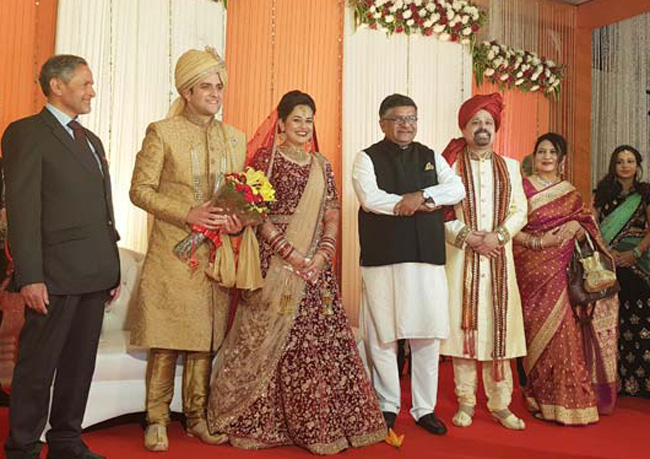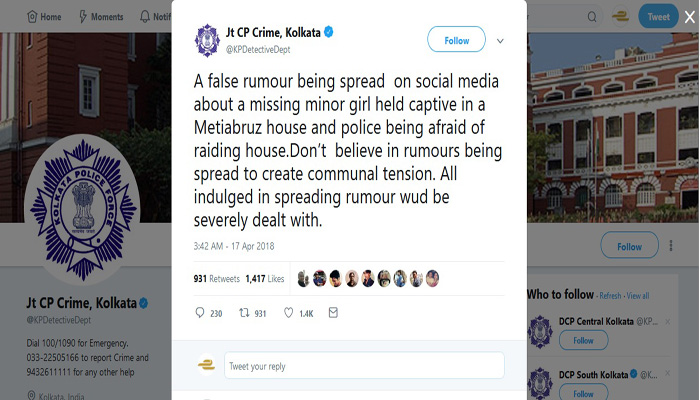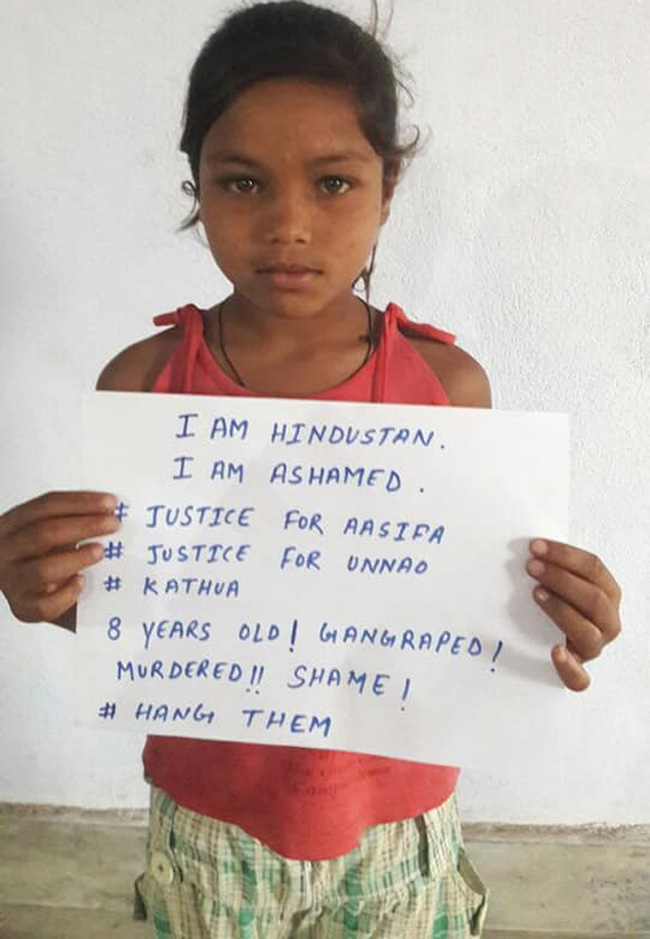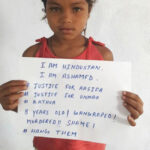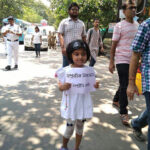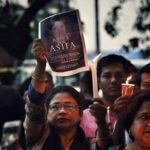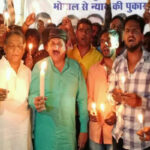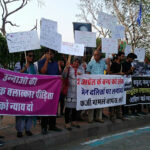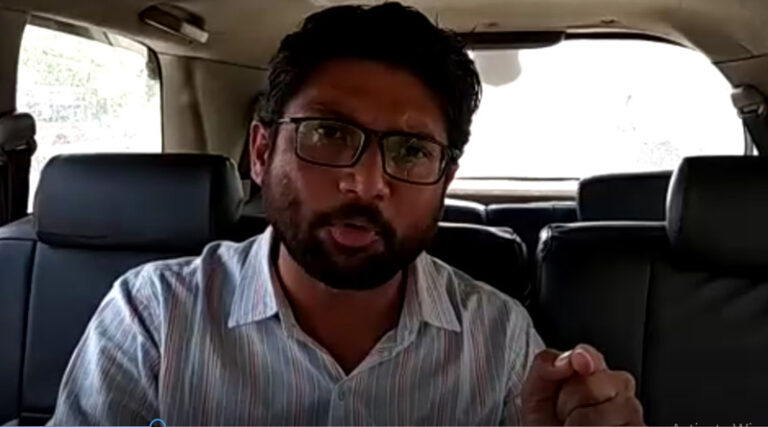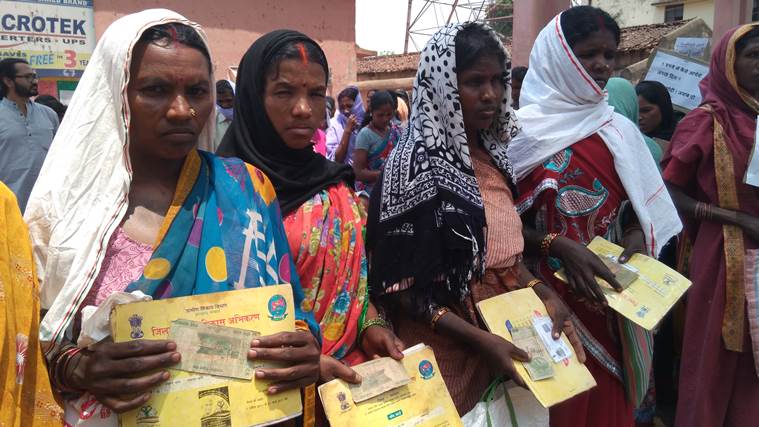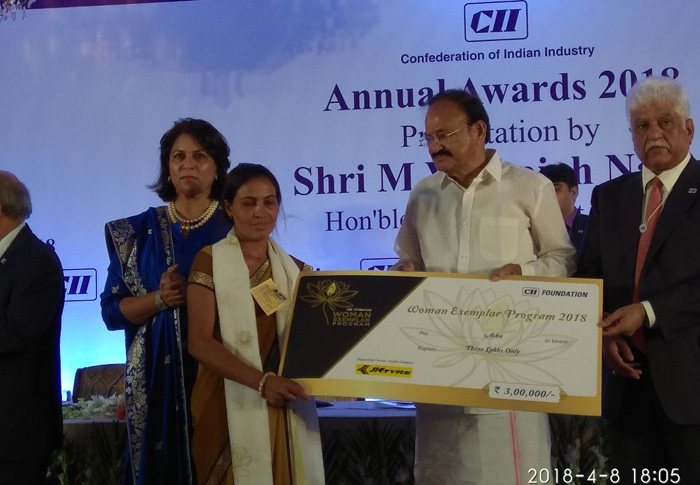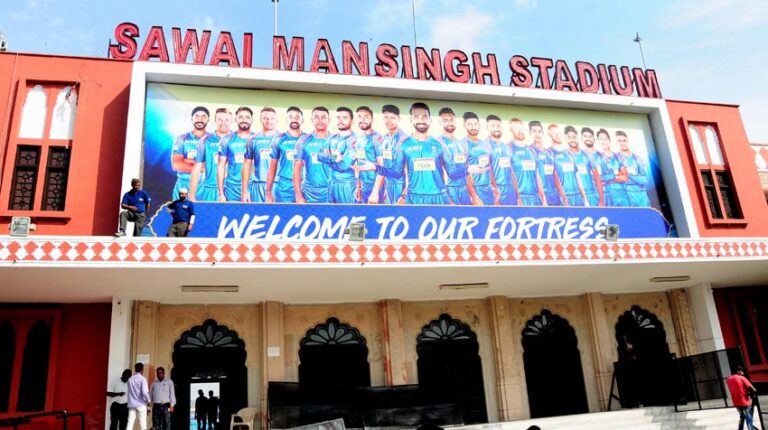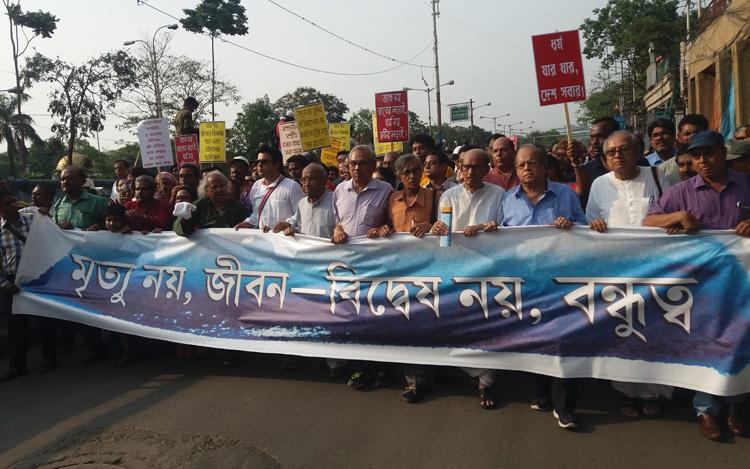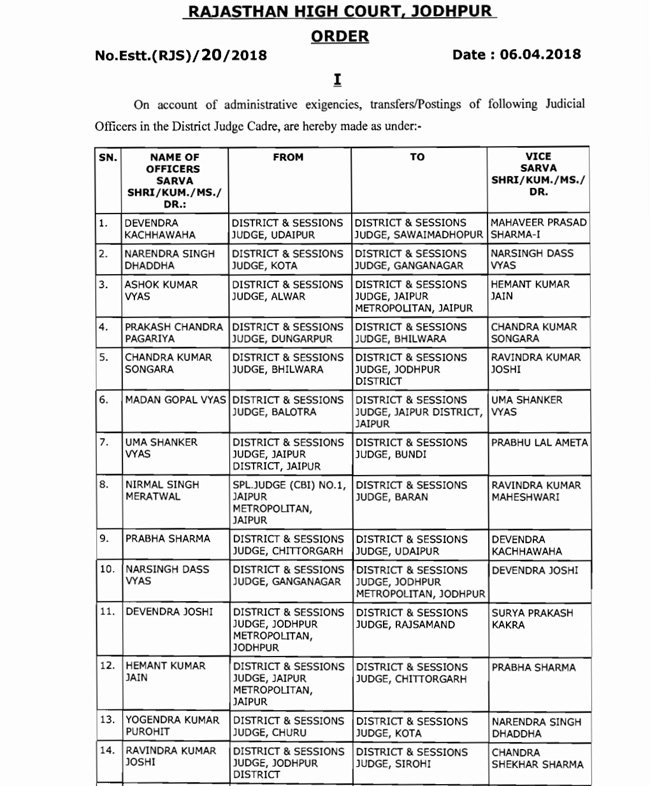Jaipur: At a time when Hadiya had to fight a legal battle to debunk the love-jihad theory, to stay with her husband, the news of Tina Dhabi, the 2016 batch, Union Public Service Commission (UPSC) topper, now serving as Indian Administrative Service (IAS) officer, marrying Athar Aamir Khan, the second UPSC topper for the same year comes as a welcome change. The news however, did not surprise many. Those who knew the couple were well aware of them being in love since many years.
But, what was most amusing with Tina-Athar wedding was that politicians belonging to Bhartiya Janata Party (BJP), which has coined the term Love-Jihad, for Hindu-Muslim marriages in India, were seen gracing the occasion and blessing the newly wed ‘power’ couple.
On March 20, Tina and Athar had a court marriage in Jaipur. However, Tina tweeted about it on April 9 and also shared details of the two wedding receptions, going to be hosted in Delhi and Kashmir.
And it was not just one or certain low profile leader belonging to the BJP, who attended the ceremony. But right from Vice-President of India, Venkaiah Naidu to Lok Sabha Speaker Sumitra Mahajan and Minister for Law and Justice, Ravi Shankar Prasad, attended their reception hosted in Delhi on April 14.
Both, Tina and Athar are Rajasthan cadre IAS and are posted in Ajmer and Jaipur respectively. Tina’s ancestral place is in Pali district, but her parents had shifted to Delhi.
Significantly, Rajasthan is the place, where on December 6, 2017, 50-year-old Afrazul Khan, a resident of Malda, Bengal had been brutally murdered by Sambhulal Regar in Rajsamand district on the suspicion of Afrazul causing love-jihad. Shambhulal had shown no remorse after the incident, while BJP leaders from both Rajasthan and Delhi had remained silent on the heinous crime.
While, interfaith or mixed marriages have been done from time immortal in India. It is more common among high profile people and celebrities. Rajasthan, has also history of such marriages, especially among the Kayamkhani community. But in recent times, it has been coined as love-jihad and get politicised too.
“I remember two cases of the Kayamkhani Muslim community, where, a girl and a boy had married their partners who belonged to different religion and we had welcomed them like Rajasthan has welcomed Tina and Athar. Aslam Khan, an IPS officer, was a girl belonging to Kayamkhani Muslim community. She chose to marry a Dalit IPS officer, Pankaj Kumar in 2007. Presently, Aslam is posted in Delhi. Similarly, an advocate from the same community chose to marry a girl belonging to the Soni family. Both these marriages were well accepted and not branded as love-jihad,” told Ashfaque Kayamkhani, a social activist from Sikar, Rajasthan, to eNewsroom.
“Marrying outside caste and religion is a very common among the Kamayamkhani community,” claimed Ashfaque.
Indian Constitution under Article 21, gives liberty to every adult citizen of India to right to marry a partner of their choice. However, when interfaith marries take place between couples hailing from economically weaker section of society, it gets labelled as love-jihad, especially if the girl is Hindu.
After the UPSC 2016 results, when for the first time, Tina had expressed her love for Athar and said that she will marry the second topper, some right wing organizations had written to the parents of Tina expressing their unhappiness on her decision.
Right wing outfits not just make a hue and cry over it, but also have several websites and social media pages filled with fake articles to strengthen the narrative of love-jihad.
It was because of this, that Shambhulal had hacked and set ablaze Afrazul. Following Regar’s arrest, a rally had also been organised to show solidarity. In fact a huge amount of money had also been crowdfunded in his wife’s account.
Under such circumstances, Tina and Athar’s wedding and the presence of BJP leaders has brought smile on professors of inter-religious and inter-caste marriages.


